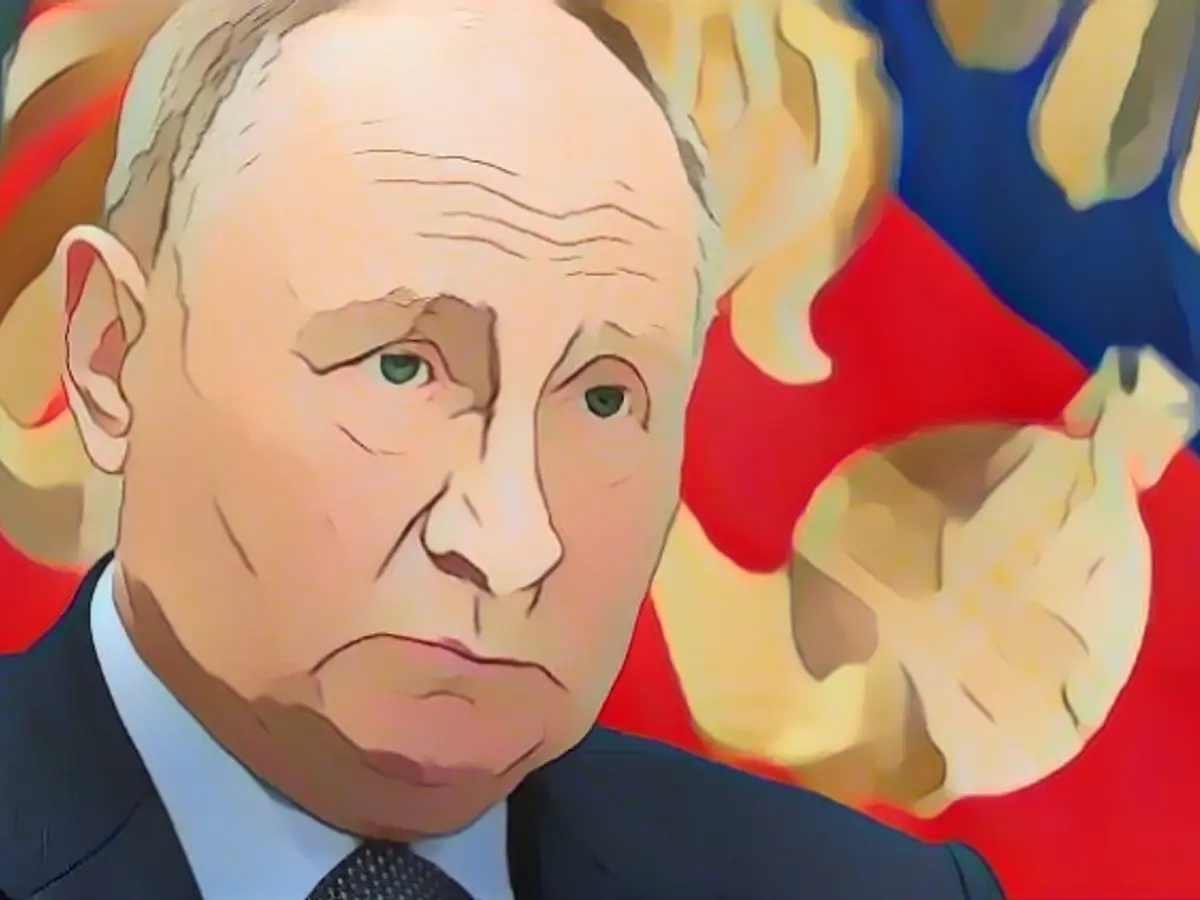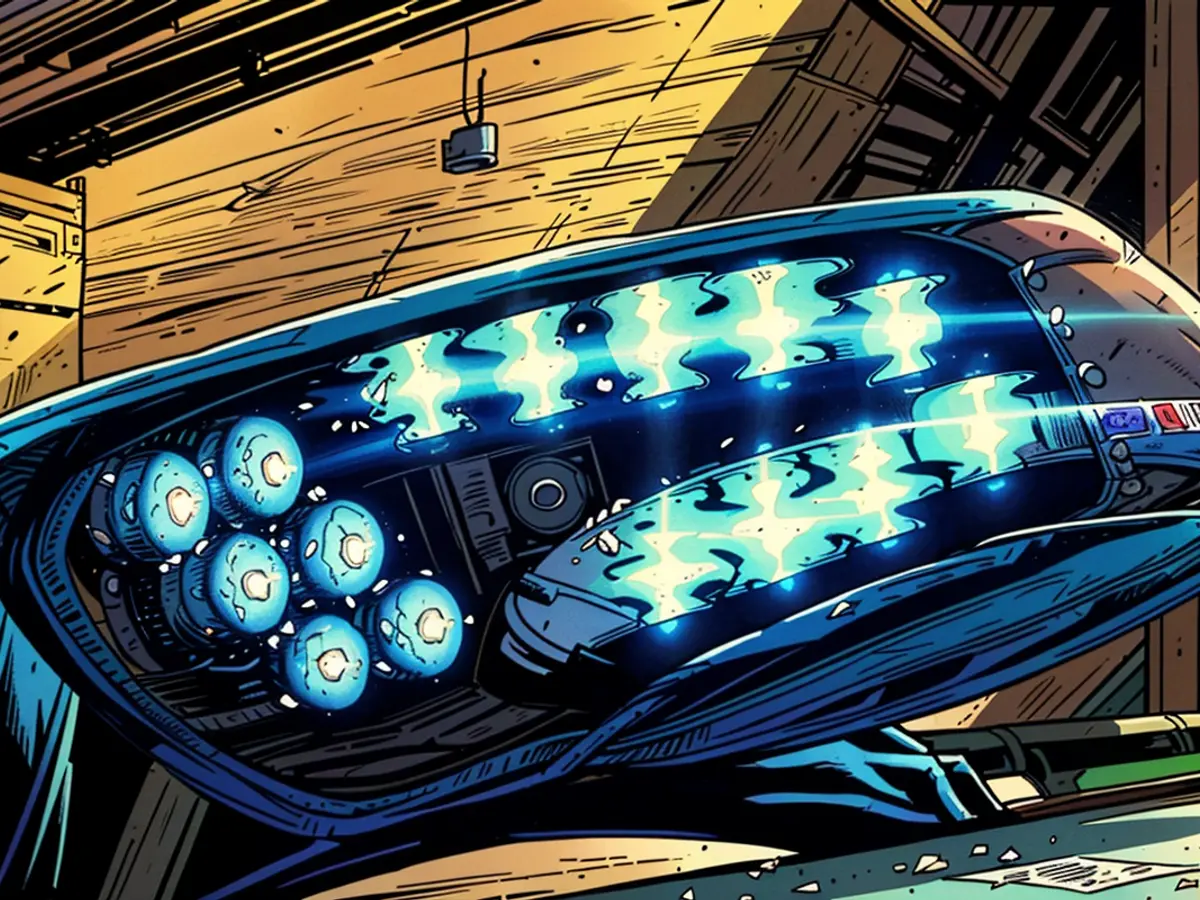ISW warns against Putin's ceasefire offer
According to the New York Times, Vladimir Putin is signaling his willingness to a ceasefire to the West via intermediaries. The Institute for the Study of War strongly warns against accepting this: This offer does not match the rhetoric of the Kremlin leadership.
Recently, a report in the New York Times about an allegedly secret ceasefire offer by Russian President Vladimir Putin attracted a great deal of attention. According to the newspaper, the Kremlin leader is said to have signaled "at least since September through intermediaries" that he would be open to a ceasefire in which the fighting along the current front would be frozen. This was reportedly communicated by two former high-ranking Russian officials close to the Kremlin, as well as American and international officials who received the message from Putin's envoy.
The US Institute for the Study of War (ISW) does not believe that the offers from the Kremlin actually existed: In an analysis, the military think tank's researchers warn against ignoring the Kremlin's "largely near-constant public signaling of Russia's maximalist goals in Ukraine." Only a few days ago, for example, Russian Foreign Ministry spokeswoman Mariya Zakharova declared that a settlement of the conflict was only possible by achieving the "goals of the special military operation".
Big doubts about Putin's sincerity
There are "several reasons to believe that Putin's ceasefire offer may not be sincere", writes ISW. It is possible that the Kremlin leader intends to "use the time he would have to spend on lengthy negotiations to his political and military advantage".
The war researchers mistrust the assumption that Putin's peace offers via intermediaries "reflect his thoughts and wishes more accurately than the rhetoric that he and other Kremlin officials repeatedly make public." This rhetoric has repeatedly indicated that Russia is not interested in negotiating in good faith with Ukraine or the West.
Medvedev wants to continue
A recent interview with the Deputy Chairman of the Russian Security Council, Dmitry Medvedev, is cited in this context. When asked about the possibility of negotiations next year, he told the Russian state media outlet RIA Novosti that the "special military operation", as the invasion of Russia is known, would continue. Russia's goal is the "disarmament of Ukrainian troops", which, according to ISW, means the demilitarization of the country.
Medvedev also renewed accusations of alleged "neo-Nazism by the current Ukrainian state" and spoke of wanting to achieve a regime change in Kiev.
The ex-president also claimed that Odessa, Dnipro, Kharkiv, Mykolaiv and Kiev were "Russian cities". ISW sees these statements as an indication that Russia may intend to occupy territories beyond the current front line - and not freeze them, as Putin's intermediaries allegedly offered. Citing intelligence sources, the German newspaper Bild reported a few weeks ago that Putin wanted to conquer all areas to the left of the Dnipro River by 2026, i.e. large parts of the Zaporizhia, Dnipro and Kharkiv regions.
Lavrov mourns the loss of the Soviet Union
Statements by Russian Foreign Minister Sergei Lavrov, who also recently gave an interview to RIA Novosti, also do not fit in with a ceasefire offer, according to the war researchers. Lavrov claimed that it was the West that was looking for a way to end the war in Ukraine in order to declare a Ukrainian victory at the same time. According to ISW, this was "possibly a reaction to Western reports of Russia's willingness to negotiate", which emerged with the appearance of the article in the New York Times.
Lavrov also regretted the collapse of the Soviet Union and said that Ukrainians and Russians were "one people". Kiev's demands for a return to its 1991 borders were "demands for genocide", he claimed.
ISW: "cleansing campaigns" in occupied territories
Far from the rhetoric of leading Russian politicians, ISW also cites the conditions in the occupied territories as an argument against freezing the conflict, which could be tantamount to ceding territory. "Russian armed forces and administrations are conducting large-scale and targeted ethnic cleansing campaigns by forcibly and illegally deporting Ukrainians to Russia and replacing them with Russians and migrants from Russia," the analysis states.
The administrations have illegally deported tens of thousands of Ukrainian children to Russia to be adopted by Russian families and are "systematically working to eliminate the Ukrainian language, culture, history and ethnicity in the territories occupied by Russian forces." These are accusations that have also been repeatedly documented by the National Resistance Center, which was founded by the special forces of the Ukrainian army.
The government in Kiev, which is only able to maintain the ongoing defensive war against Russia thanks to Western arms and financial aid, has so far shown no willingness to cede territory. Ukraine continues to demand that Moscow withdraw all troops from its territory.
Read also:
- Year of climate records: extreme is the new normal
- Precautionary arrests show Islamist terror threat
- UN vote urges Israel to ceasefire
- SPD rules out budget resolution before the end of the year
Source: www.ntv.de








